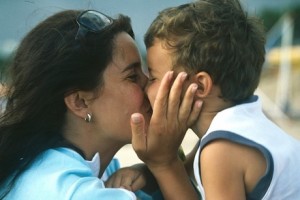With the start of the New Year comes making resolutions. Many resolutions include hitting the gym, saving money, eating healthier, getting organized, and learning something new. Start the year out POSITIVE with a resolution to increase POSITIVE REINFORCEMENT!
The definition of positive reinforcement is: the offering of desirable effects or consequences for a behavior with the intention of increasing the chance of that behavior being repeated in the future.
If your child is engaging in negative behaviors and you are constantly redirecting them or telling them to “STOP!” the behavior, you could be reinforcing the negative behavior. For example, if your child enjoys your attention and you are often giving them attention for “naughty” behaviors the undesired behaviors will likely increase.
Instead of reinforcing the negatives, focus on what your child does well and PRAISE those POSITIVES! Adults and kids enjoy hearing what they are doing well. It feels GREAT! When you are given positive reinforcement (and get that great feeling!) you are likely to continue that behavior.
Why should we use positive reinforcement?
- Children need verbal affirmation
- It boosts their character development
- It boosts their self-esteem
- It can motivate kids to seek more positive reinforcement and increase their positive behavior
Tips and Tricks:
- Positive reinforcement is not bribery! Reinforcement is earned!
- Find rewards that are motivating to your child
- Verbal- “Thank you for cleaning up your toys. You are organized today!” Be specific!
- Tangible- Provide a sticker, token, books, puzzles, etc.
- Edible- Skittles, M&M’s, pretzels, Goldfish, etc.
- Activity- Crafts, play a game together, earn iPad time, etc.
- Provide the positive reinforcement IMMEDIATELY when the desired behavior occurs
- Magic 5:1 Ratio- Provide your child 5 positive interactions/reinforcement per every negative interaction/redirect
- Show your feelings when you reward your kiddo
- Help your child set goals to keep them improving
Best wishes for a POSITIVE 2016!
- Tina Pratt, M.Ed BCESC Behavior Intervention Coach
- Cassidy Wodke, M.Ed, Intervention Specialist
- Katie Strubbe, Intervention Specialist
- Dave Bell, M.Ed BCESC Behavior Intervention Coach
Photo: freeimages.com/SebastianDanon





